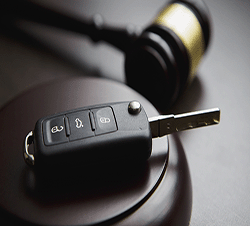Alabama Traffic Court Records Search
Understanding Alabama Traffic Court Records
Alabama traffic court records contain valuable information about documents and the legal outcomes related to traffic violations. From speeding tickets to more serious driving offenses, these records are housed across various court systems within the state. Understanding how Alabama’s court system handles traffic records, the role of the Alabama Court of Appeals, and how to locate or contest a traffic citation can provide clarity for those navigating this process.
Courts Handling Traffic Citations in Alabama
In Alabama, traffic citations are typically handled in three types of courts: Municipal Courts, District Courts, and Circuit Courts. The type of court responsible for the citation normally depends on the location and severity of the offense. Each of these courts' functions within its own jurisdiction, with municipal courts handling cases on a city level, district courts covering countywide traffic violations, and circuit courts overseeing broader, more complex cases. Here is a breakdown of the various courts that handle these types of cases:
1). Municipal Courts: For most traffic violations that occur within city limits, municipal courts are the first point of contact. These courts handle minor traffic offenses such as speeding, running a red light, and parking violations. Each municipality has its own court system that processes these cases.
2). District Courts: For traffic citations that occur outside city limits or for offenses that may involve more serious penalties, district courts take over. They manage more severe traffic violations such as reckless driving, driving under the influence (DUI), and other misdemeanors related to vehicle operation.
3). Circuit Courts: In some instances, traffic violations may intensify to circuit courts, primarily when they involve criminal charges or appeals from lower courts. These courts deal with felony traffic offenses and other serious driving-related charges, such as vehicular manslaughter or repeat DUI offenses.
The Alabama Court of Appeals and Traffic Violations
The Court of Criminal Appeals is an option if a person convicted of a traffic violation chooses to appeal the decision. This is not typical for most traffic tickets, but more so for DUIs and reckless driving citations. The Court of Appeals reviews decisions from lower courts to regulate if there were any legal errors in the handling of the case. This court can either uphold the lower court’s ruling, overturn the conviction, or send the case back for retrial. Appealing a traffic citation is often a multi-step procedure that might require the help of an attorney. The appeals process doesn't usually re-examine the evidence, but instead makes certain that legal procedures were correctly followed.
How to Lookup an Alabama Traffic Citation
Finding information about a traffic citation in Alabama is a fairly simple process. Here are the various steps you can take to lookup someone's citations:
1). Online Court Records: The state and county courts allow individuals to search for traffic court records online. Third party websites can also provide access to case details for a fee. A benefit of using third party website is you can also run a person's driver history, which is not something you can do directly through the courts.
2). Municipal or District Court Clerk’s Office: You can also visit or contact the court where your citation was filed. The clerk’s office can provide you with information regarding the status of your citation, upcoming court dates, or the final outcome of the case.
3). Alabama Traffic Call Center: For those with citations processed through the state's Traffic Service Center, you can call to obtain information about your traffic ticket, including due dates and payment instructions.
4). Ticket Number Lookup: This is usually the easiest way to track your citation. You can simply enter the citation number into the court’s or service center’s website to access details about your case.
How to Fight a Traffic Ticket in Alabama
If you believe a traffic ticket issued to you was not warranted, you can choose to fight the ticket in court. Remember, you are not guilty until you are proven guilty. Here's a step-by-step overview of this petition process:
1). Plead Not Guilty: The first step to contest a traffic citation is to plead not guilty. There are various ways to go about this, either by mail or in person at the court where the ticket was filed. After your plea, the court will set a trial date.
2). Pre-Trial Conference: Before the trial, you may be required to attend a pre-trial conference where you will have a chance to discuss your case with a prosecutor. This could lead to a plea deal or reduced charges. If no agreement is reached, the case proceeds to trial.
3). Trial: During the trial, you’ll present your defense, which may involve questioning the officer who issued the citation or introducing evidence such as dashcam footage or witness testimony. You have the option to represent yourself, but hiring an attorney with experience in traffic cases can be helpful in more serious cases that involve DUIs or reckless driving cases.
4). Judge’s Decision: After both sides have presented their arguments, the judge will make a ruling. If you are found not guilty, the charges will be dismissed, and no penalties will apply. If found guilty, you may be subject to fines, points on your driving record, and other penalties, depending on the seriousness of the respective moving violation.
Are Traffic Tickets Considered Public Record in Alabama?
Yes, all traffic tickets, DUIs and driving records are part of the public records network in Alabama that anyone can access online. You will need to know the name of the individual or the citation number to lookup this information.
Are Alabama Traffic Tickets Considered Criminal Records?
Traffic tickets and DUIs will also show up on a background check that are considered part of a person's criminal history. While they are smaller crimes, they are still considered criminal infractions. These are considered violations of the law, which is a criminal act, that can stay on a person's criminal record for many years.
Can I Go To Jail For a DUI in Alabama?
Yes, the majority of DUIs will result in someone's arrest and detainment in a holding cell if they fail a sobriety check. That person will be booked into local jails or a holding facility. They will also face criminal charges that are typically misdemeanors but sometimes are treated as felonies, especially if there was an accident involved where someone was injured.


